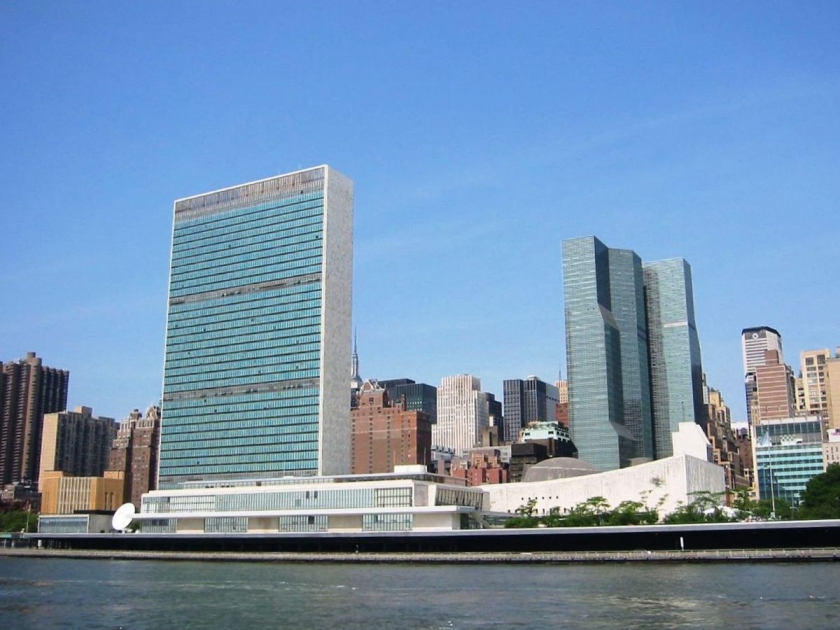Joint Statement by EAEU Member States at the Sustainable Development Goals Summit
Dear Ladies and Gentlemen! Esteemed Chairman!
On behalf of the Eurasian Economic Union Member States - the Republic of Armenia, the Republic of Belarus, the Republic of Kazakhstan, the Kyrgyz Republic and the Russian Federation, and as the representative of the State chairing the EAEU governing bodies in 2023, I would like to inform you how the development of economic integration processes within the EAEU contributes to achieving the Sustainable Development Goals by the EAEU Member States.
Nowadays, the EAEU is one of the developed integration regional associations, which ensures free movement of goods, services, capital and labor. The EAEU prime objective is to improve the well-being of the Member States' citizens. For this purpose, persistent efforts are made to establish the EAEU common markets in certain areas of cooperation. Today the EAEU is more than 184.3 million consumers. The aggregate GDP of the Member States is over 2 trillion US dollars.
Eurasian integration is based on the principles of equality, mutual respect, and consideration of the interests of all its participants, as well as the functioning of the customs union without exemptions and restrictions. This close cooperation is a source of economic development for the participating countries.
Each EAEU Member State takes specific steps to achieve the Sustainable Development Goals using national policy documents, strategies and development concepts.
Economic integration within the EAEU is also an additional factor contributing to the SDGs achievement.
The EAEU was the first association among regional economic integration organizations to analyze the correlation between the depth of integration and progress
in implementing the SDGs. The starting point for further assessment of our path towards achieving the 2030 Agenda was the report "Indicators of SDG Achievement in the EAEU Region" prepared by the Eurasian Economic Commission and presented at the High-Level Political Forum on Sustainable Development under the auspices of the UN Economic and Social Council (ECOSOC) in 2017.
The EAEU Member States are pleased to note the satisfactory pace at which they are achieving the SDGs in the areas within the EAEU competence.
The well-established work in statistics within the EAEU makes it possible to expand the number of indicators that can be calculated within the integration association to evaluate progress in achieving the SDGs.
For these purposes, the Member States have determined a list of indicators for achieving the SDGs, with due regard to the EAEU development priorities.
For example, free movement of goods guaranteed within the EAEU has a tangible impact on the SDG indicators.
The citizens of our States experience practical benefits from free movement of labor implemented in the EAEU. The workers from the EAEU Member States do not need to obtain work permits, and confirmation of their education issued in the EAEU Member States.
Businesses of our countries and partners operating within the EAEU Member States benefit from the single market of services. About 50% of the total volume of services are rendered within the EAEU according to uniform rules. The number of service sectors applying a single legal regulation regime is constantly increasing.
In order to ensure free movement of capital, the Member States have agreed to gradually harmonize their national legislation in the field of financial market regulation until 2025. This work will result in establishing the EAEU common financial market and a regulatory body for financial markets within the EAEU.
The EAEU digital agenda has made a significant contribution to achieving the SDGs by the EAEU Member States. In particular, the Unified Search System "Work without Borders"significantly simplifies search for employment, while the EAEU Ecosystem of Digital Transport Corridors and the Eurasian Industrial Cooperation Network accelerate the process of marketing new products and strengthening cooperation with third countries.
Achieving the SDGs has much to do with the efficient implementation of the climate agenda. Our five countries realize the importance of ensuring universal access to clean, sustainable and modern energy and of taking steps to combat climate change, environmental degradation and natural disasters. We have formed the Bank of Climate Technologies and Digital Initiatives, including those related to carbon footprint accounting, and a list
of criteria for the EAEU Member States' green projects has been approved.
International cooperation is important in achieving the SDGs. The EAEU stands for an equitable dialog between integration structures and sees this as the key to a more efficient functioning of the global economic architecture.
We are pleased to note that our partners in other regions of the world share this approach.
We also highly appreciate the attention to regional cooperation issues paid by the UN, its regional commissions and UN organizations.
We express our interest in studying the international best practices in reforming economic sectors in order to achieve the SDGs, which is of particular importance in light of the forthcoming determination of the strategy for the further development of the EAEU.
Achieving the SDGs is a common goal for which all participants of international relations should join efforts and mobilize existing resources.
Thank you for your attention.
